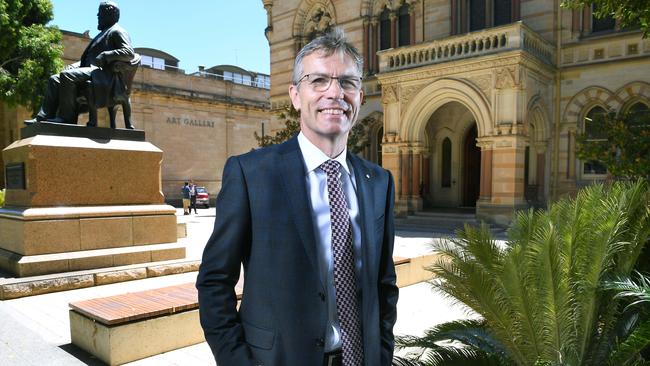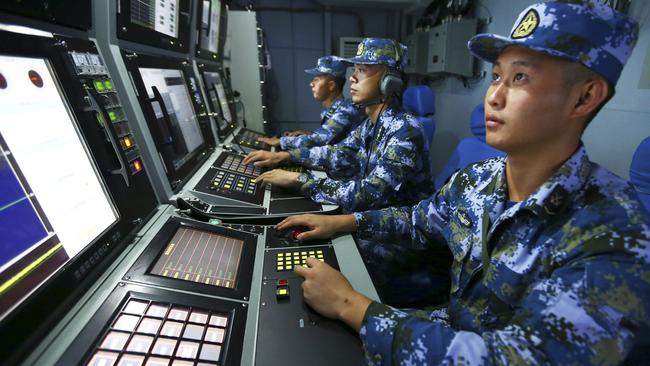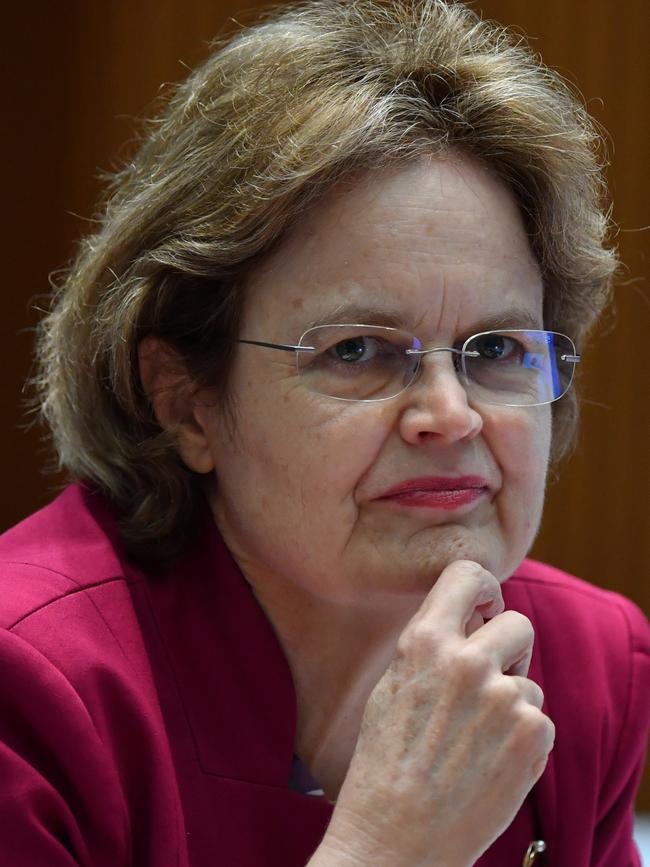Adelaide University rejects lucrative research funding from China because of suspected defence connections
Adelaide University refused millions of dollars in research funding from China because of suspected connections to military or security projects.
SA News
Don't miss out on the headlines from SA News. Followed categories will be added to My News.
Research projects worth millions of dollars in revenue were knocked back by Adelaide University because of risks associated with links to China.
Adelaide has also rejected other collaborations with foreign universities because of “links to a nuclear weapons program”.
One project on advanced materials, which would have brought in $3m, was found to be partly funded by a Hong Kong company whose interests stretched deeper into China to owners with potential connections to money laundering or hiding assets. Advanced materials often have military applications.
A second project on computer security and robustness was proposed by a major Shenzhen company but it was rejected at “significant” financial cost to the university in a decision which jeopardised the jobs of some uni staff.
The projects were aborted after the university’s own vetting process rang alarm bells, the institution has told a joint federal parliamentary committee.
The university rejected the Shenzhen and Hong Kong projects before tougher federal laws clamped down on potential foreign interference.
Since those laws were applied in May last year, a further five proposals have been rejected. Adelaide Uni did not name the foreign universities involved but said two of the five were high risk because of their defence research “and links to a nuclear weapons program”.
The information was submitted to the federal inquiry into security risks in higher education following an appearance at the committee last month by Adelaide vice-chancellor Peter Hoj and deputy vice-chancellor (research) Anton Middelberg.

Adelaide was one of Australia’s universities most deeply engaged in defence research, and alert to how international engagement “has fundamentally changed in very recent times”, the uni leaders said.
“While international engagement and collaboration have been an enabler of success, the balance between international collaboration and the protection of sovereign interests has rarely before been so simultaneously important and fraught,” they said.
Without naming the destinations or value, the university revealed it has been given Federal Government clearance in sensitive defence or security areas with six permits to export software or technology and five permits to export goods since 2016.
Adelaide believes it is the only university to have renewed its formal Defence Industry Security Program membership.

Flinders University – which has yet to block any collaborative projects under the tighter security protocols – is a member of the Innovative Research Universities lobby group.
The group told the committee there were growing risks but sharing knowledge was a fundamental goal of the higher education sector.
“Applying a ‘fortress Australia’ mindset to research – the assumption that all research will be done within Australia, by Australians, and the results developed in Australia – would undermine the economic return from research and deny Australia access to research produced by the rest of the world,” the lobby group said.
“We must remain a leading part of the international research system.”
It said international research income was worth $483m to Australian unis in 2019, or 11 per cent of total research income.
The US was the leading partner, contributing to 93,000 joint publications from 2015-20, followed by China on 74,000 publications, then the UK on 69,000.
The lobby group representing UniSA, the Australian Technology Network, said the sector was adapting to the rising challenge of security issues.
UniSA has appointed a dedicated Defence and National Security Officer to develop and implement enhanced checking.
UniSA deputy vice-chancellor research Marnie Hughes-Warrington said no grants or partnerships had been rejected on security grounds but all processes had been “updated and aligned to new guidelines”.
The changing relationship with China was also highlighted on Tuesday by Frances Adamson, a former ambassador to the People’s Republic and current secretary of the Foreign Affairs and Trade Department.
Speaking as she received an honorary doctorate from Adelaide University, Ms Adamson called on new graduates to be mindful of the growing tension between the US and China.
China was asserting itself in ways that “challenge and undermine” agreed rules about international relations, including with Australia.

Today’s students were likely to be affected “possibly quite directly, because the way this plays out will influence the peace and prosperity of our state, our country, our region and the world”, she said.
Ms Adamson’s views were expressed the day after former defence minister Christopher Pyne wrote in The Advertiser and told new Adelaide University graduates the risks of war with China were growing.
Meanwhile, Adelaide University chancellor Catherine Branson replied to allegations raised in the parliamentary committee by Senator Eric Abetz questioning why Professor Hoj was appointed in February despite his “deep engagement with China”.
Ms Branson said the university had undertaken extensive due diligence before settling on Prof Hoj.
This included soliciting the views – all of which were supportive – of then federal education minister Dan Tehan, SA Education Minister John Gardner, then chief executive of the Premier and Cabinet Department Jim McDowell and through him Premier Steven Marshall, and chief defence scientist Tanya Monro.
Ms Branson said senators Simon Birmingham and Penny Wong were among prominent leaders who publicly supported the appointment.
The committee is due to report by July.
More Coverage
Originally published as Adelaide University rejects lucrative research funding from China because of suspected defence connections




